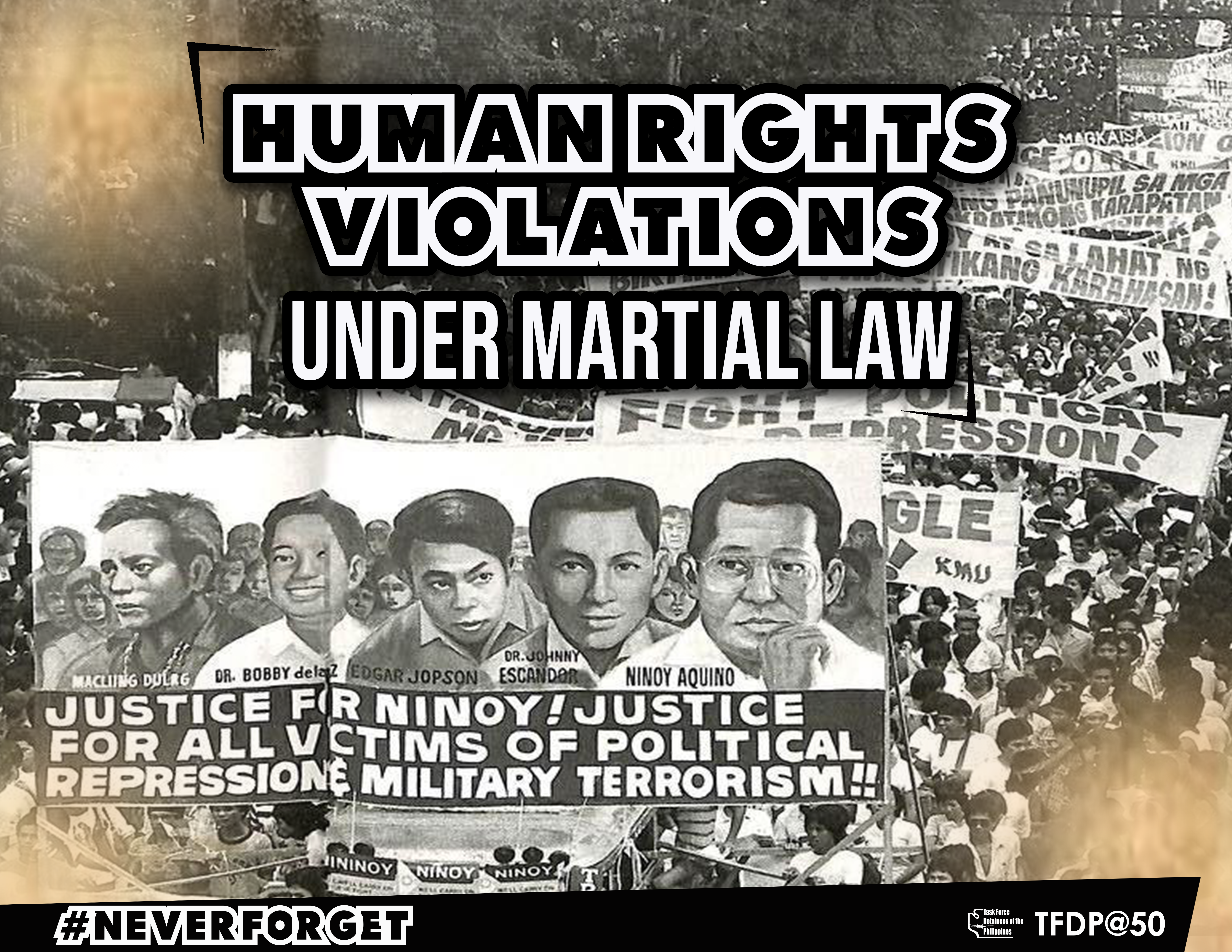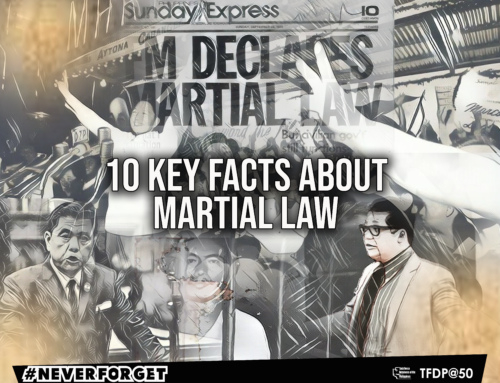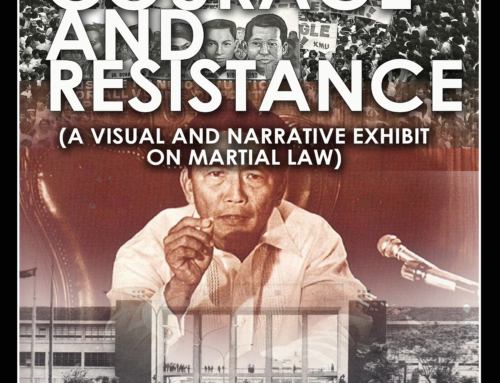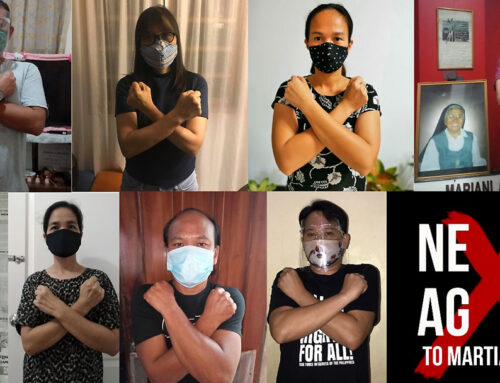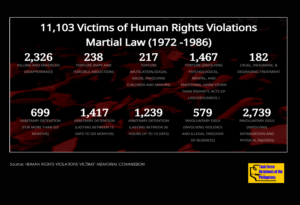
During Martial Law in the Philippines under the late President Ferdinand Marcos Sr., numerous human rights were systematically violated. Here are some of the key human rights abuses documented during that period:
- Arbitrary Arrests and Detentions: Thousands of individuals, including political opponents, activists, journalists, and ordinary citizens, were arrested without warrants and detained without charges. Many were imprisoned for extended periods without trial.
- Torture: Detainees, particularly those suspected of being subversives or critics of the regime, were subjected to various forms of torture. Methods included electric shock, waterboarding, beatings, and psychological torture.
- Enforced Disappearances: Many individuals were abducted by state forces and never seen again. These enforced disappearances were often used to silence dissent and instill fear in the population.
- Extrajudicial Killings: Numerous cases of summary executions were reported, where individuals were killed by state security forces or paramilitary groups without any legal process. These killings targeted activists, suspected insurgents, and even civilians.
- Suppression of Freedom of Speech and Press: The regime imposed strict censorship, shutting down media outlets that were critical of the government. Journalists who dared to report on human rights abuses or criticize the Marcos administration faced harassment, arrest, or worse.
- Suppression of Freedom of Assembly and Association: Public gatherings and protests were banned, and any form of opposition was met with force. Organizations deemed subversive or anti-government were outlawed, and their members were targeted.
- Denial of Due Process: The judiciary was heavily influenced by the executive branch, and courts were often used to legitimize arbitrary arrests and detentions. Many political detainees were denied fair trials or were tried in military courts under questionable legal standards.
- Economic Exploitation, Land Grabbing, and Cronyism: Martial Law facilitated the concentration of wealth and land in the hands of Marcos cronies. Farmers, indigenous peoples, and poor communities were often displaced or forced off their land without compensation. Cronyism also allowed Marcos’s close allies to control key industries and amass vast wealth, further entrenching economic inequality.
- Forced Displacement: Communities, especially those in rural and indigenous areas, were forcibly displaced due to military operations, infrastructure projects, or land grabs by the regime and its allies. These displacements often resulted in loss of livelihood and severe poverty.
- Violence Against Women and Sexual Abuse: Women, particularly those in detention, were subjected to sexual violence, including rape and other forms of sexual abuse, by military and police personnel. These abuses were often committed with impunity.


